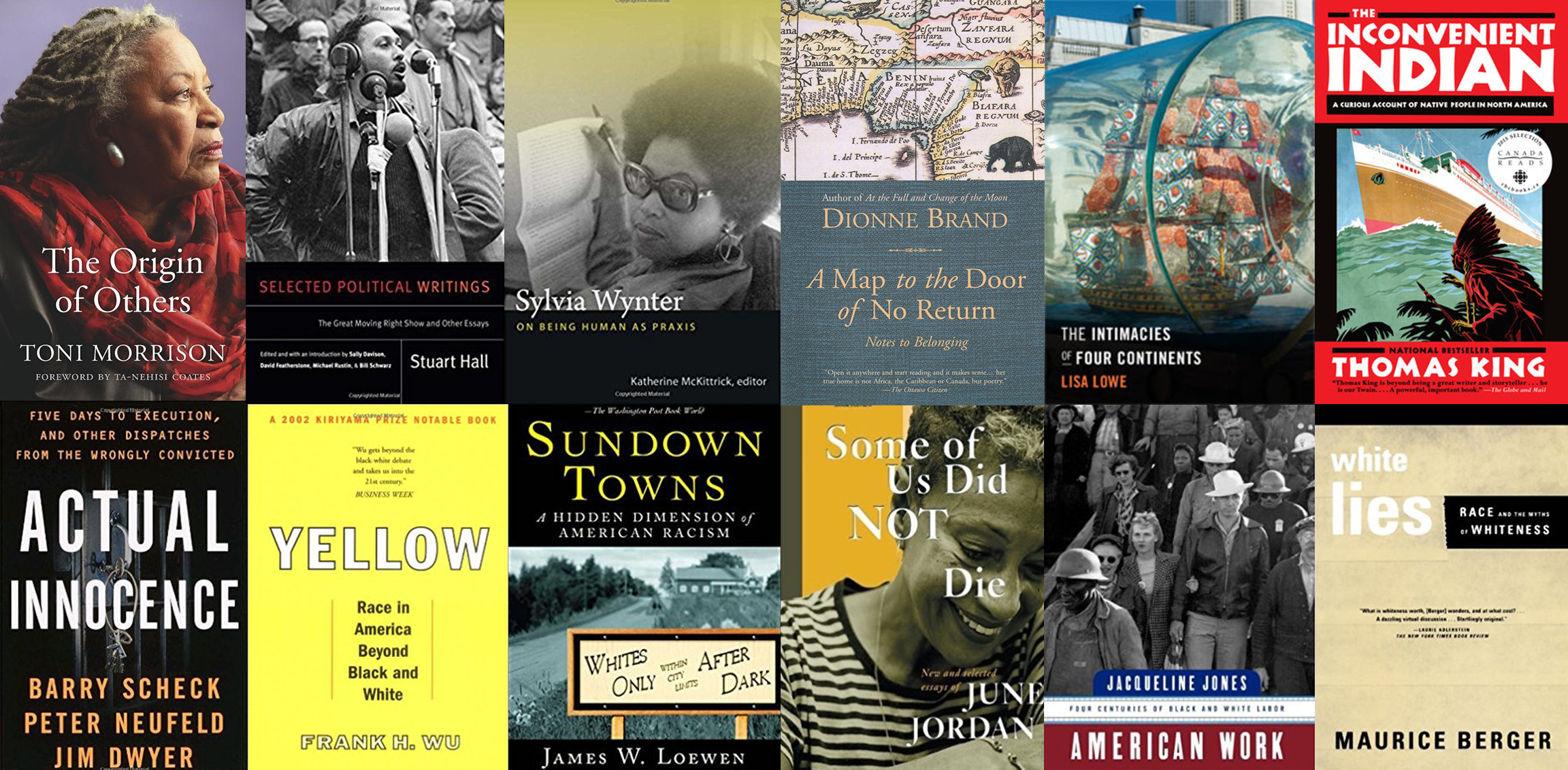
In the current political climate, America’s racial toxicity is amplified and exploited through a revisionist lens. Through our current presidential administration, racial anxieties have found a public platform. Americans are retreating from each other rather than seeking common connections and embracing shared goals. In an effort to better understand how the false construct of race is foundational to the American narrative, we have assembled a list of recommended reading for those interested in gaining deeper knowledge on the history that has led us to our current moment. We opted for relatively obscure books that offer rare perspectives, thoughtful insights, lesser-known histories, and astonishing information. We hope they may stir the reader’s empathy into actions and engagements that enable us to shape a more just world.
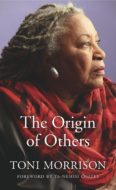 1. The Origin of Others by Toni Morrison (2017)
1. The Origin of Others by Toni Morrison (2017)
Our assessment of this book’s critical relevance is based on Morrison’s earlier work, Playing in the Dark: Whiteness and the Literary Imagination, a book that explored the stakes of caricature and the rendering of Black people in literature. This new book addresses art’s critical role in helping us identify with others and create space for self-examination and empathy.
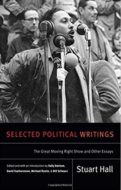 2. Selected Political Writings: “The Great Moving Right Show” and Other Essays by Stuart Hall (2016)
2. Selected Political Writings: “The Great Moving Right Show” and Other Essays by Stuart Hall (2016)
Hall’s influence on critical thought, activism, and the cultural practices of the late-twentieth century cannot be overstated. Hall’s language and analysis have always offered words to make sense of the realm of affect and aesthetics.
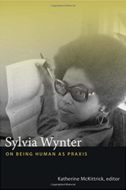 3. Sylvia Wynter: On Being Human as Praxis by Katherine McKittrick (2015)
3. Sylvia Wynter: On Being Human as Praxis by Katherine McKittrick (2015)
In the first chapters of this collection, McKittrick shares her conversations with Wynter, the great Caribbean playwright and rogue thinker. Wynter positions herself in relationship to the planet and the long histories and memories that birthed the Black diaspora. Through her ideas, we can conceive of reimagining what it means to be human. There is an urgency to this thought project that offers a feeling of freedom in accepting the challenge of following through with her ideas.
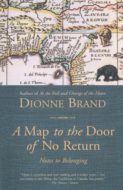 4. A Map to the Door of No Return: Notes to Belonging by Dionne Brand (2001)
4. A Map to the Door of No Return: Notes to Belonging by Dionne Brand (2001)
Dionne Brand, a citizen of Toronto, can write in any mode—novel, poem, essay—and here, she uses poetic tactics to create space for all of us. Tied to land and drawn to water, this memoir is a window onto the chasm of trauma, love, and survival that has carried Black folks this far. For readers new to Brand, this book is a gateway drug. She creates images that weave the expanse of our human tapestry.
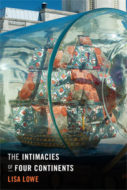 5. The Intimacies of Four Continents by Lisa Lowe (2015)
5. The Intimacies of Four Continents by Lisa Lowe (2015)
This book leans solidly against Cedric Robinson’s Black Marxism, exploring the coerced migrations of people in building the wealth of Europe. Lowe examines the ledgers and letters of colonial ship logs and plantation exports to reveal the intermingling of peoples and its manifestations in our material world. Investigating a colonial teacup or a tapestry makes the violence of capitalism personal. Exploited for our labor either by force or through meager wages, we lack solidarity because of the ways that capitalism so shrewdly pits us against one another. Wearing a wax print becomes a signifier of complicity and resistance, all at once.
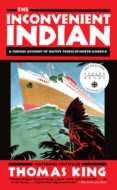 6. The Inconvenient Indian: A Curious Account of Native People in North America by Thomas King (2012)
6. The Inconvenient Indian: A Curious Account of Native People in North America by Thomas King (2012)
In the United States, the discourse about Native American rights, politics, history, and culture are marginal at best, but in Canada, the conversation about indigenous rights and lands is robust. This brisk read can point one toward the historical events, texts, and artists that are crucial to building a much-needed bridge from the past to the future, and the alliances that are crucial for progress.
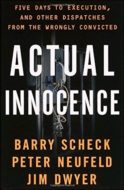 7. Actual Innocence: Five Days to Execution, and Other Dispatches From the Wrongly Convicted by Barry Scheck, Peter Neufeld, and Jim Dwyer (1999)
7. Actual Innocence: Five Days to Execution, and Other Dispatches From the Wrongly Convicted by Barry Scheck, Peter Neufeld, and Jim Dwyer (1999)
Barry Scheck and Peter Neufeld, founders of the Innocence Project, collaborated with journalist Jim Dwyer on these heart-wrenching stories of long-term suffering and eventual triumph. Many of the falsely convicted spend decades behind bars. Documented in the book are ten cases taken on by the Innocence Project, including that of Marion Coakley, who was sent to eight different New York prisons over a period of two years. At the time of the book’s publication, DNA testing provided the proof necessary to free sixty-seven innocent people from prison and death row.
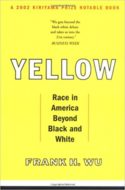 8. Yellow: Race in America Beyond Black and White by Frank Wu (2002)
8. Yellow: Race in America Beyond Black and White by Frank Wu (2002)
Wu offers a mix of journalism, scholarship, and personal experience, exploring 1940s internment camps, the 1992 uprising in Los Angeles, affirmative action, and tropes such as the “model minority” and “perpetual foreigner.” While the text is illuminating, the character of its author may be more memorable. When the book was published, Wu was the first Asian American professor at the law school at Howard University, a historically Black university in Washington, DC. One chapter is titled, “Why I Teach at Howard,” and Wu’s observations throughout the book are layered with his perspective of being ensconced within a mostly Black campus.
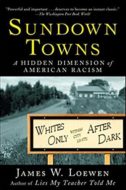 9. Sundown Towns: A Hidden Dimension of American Racism by James W. Loewen (2005)
9. Sundown Towns: A Hidden Dimension of American Racism by James W. Loewen (2005)
Loewen’s rigorous research uncovered a largely unknown aspect of America’s racial history: thousands of jurisdictions across the country, including in the North, completely banned the presence of African Americans after sunset. From 1890 to 1968 (when the Fair Housing Act became law), Blacks were prohibited from living in these “sundown towns,” though they worked in some of them. According to the residents of one sundown town in southern Illinois, the town’s name, Anna, stands for “Ain’t No Niggers Allowed.” The book presents evidence that this condition remains in a number of towns.
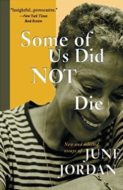 10. Some of Us Did Not Die: New and Selected Essays by June Jordan (2002)
10. Some of Us Did Not Die: New and Selected Essays by June Jordan (2002)
Whether penning poetry or prose, Jordan is a straight shooter. She writes about her annoyance, while teaching at Yale in 1973, over the reverence for Richard Wright and the exclusion of other Black writers. Shortly thereafter, Jordan was “mesmerized by [the work of a] fantastic author,” Zora Neale Hurston. This book spans Jordan’s career through 2002 and leaves no topic untouched: White-supremacist values, the poet Phillis Wheatley, breast cancer, Islam, racial and gender inequality, Black English, the politics of sexuality. Jordan’s fellow poet Adrienne Rich has said she “continually delineates the condition of survival—of the body, mind, and heart.”
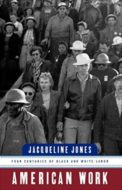 11. America Work: Four Centuries of Black and White Labor by Jacqueline Jones (1998)
11. America Work: Four Centuries of Black and White Labor by Jacqueline Jones (1998)
This epic account by the historian Jones is rich with maddening details about the systemic discrimination within the American workforce before and following slave emancipation. From field to factory to the development of the white-collar economy, Jones documents how each social transformation in the workforce destabilized the ability of African Americans to support their families and create wealth, as successive generations of White employers steered Black workers into dead-end and environmentally hazardous jobs, denied them training and promotion opportunities, and created racially divisive workplaces.
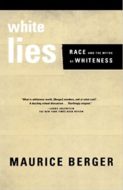 12. White Lies: Race and the Myths of Whiteness by Maurice Berger (1999)
12. White Lies: Race and the Myths of Whiteness by Maurice Berger (1999)
A professor and curator, Berger regularly writes in the New York Times about African American photographers and the portrayal of race in photography. This earlier book helps to explain his attraction to such subjects. In it, Berger scrutinizes the veil of White privilege, a phenomena he first observed as a Jewish kid growing up in the Lower East Side projects in New York City. One telling story recounts his parents’ emotionally divergent responses to the assassination of Martin Luther King Jr.: his mother unsympathetic, his father inconsolable. Part memoir, part reportage, this book weaves together Berger’s poignant experiences, observations, and self-reflections.



